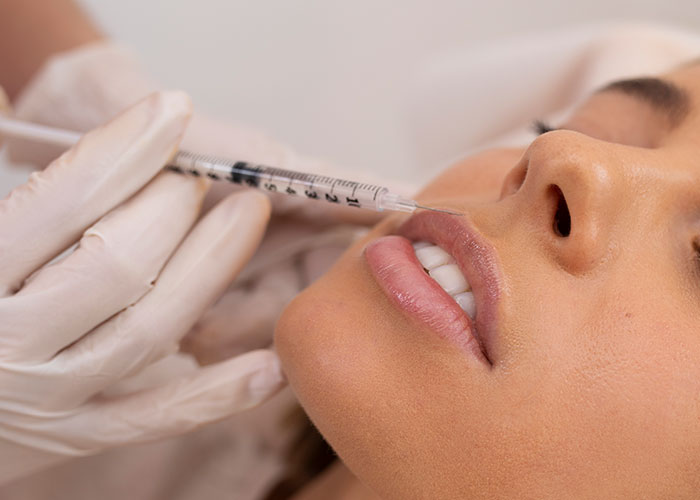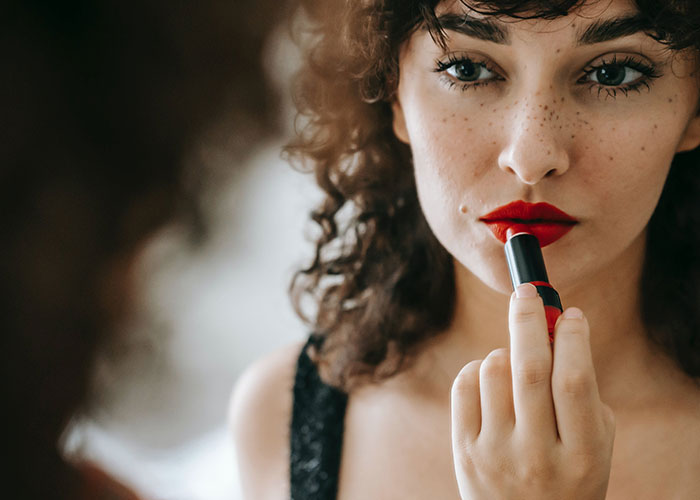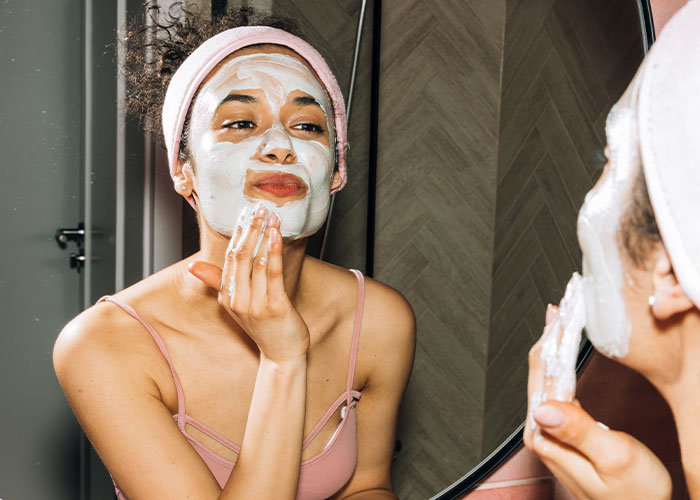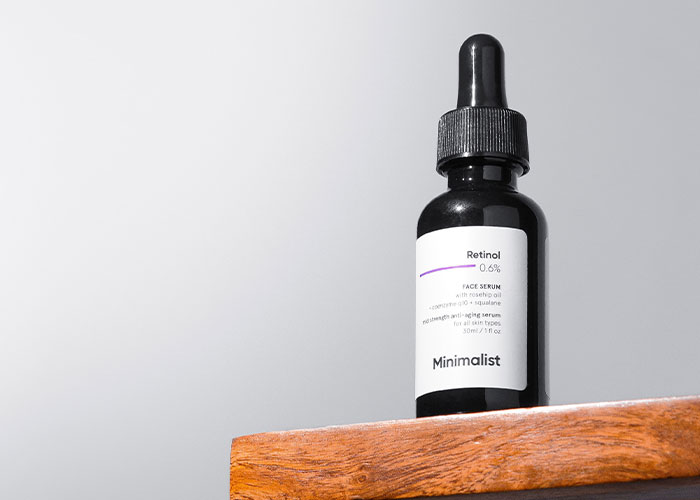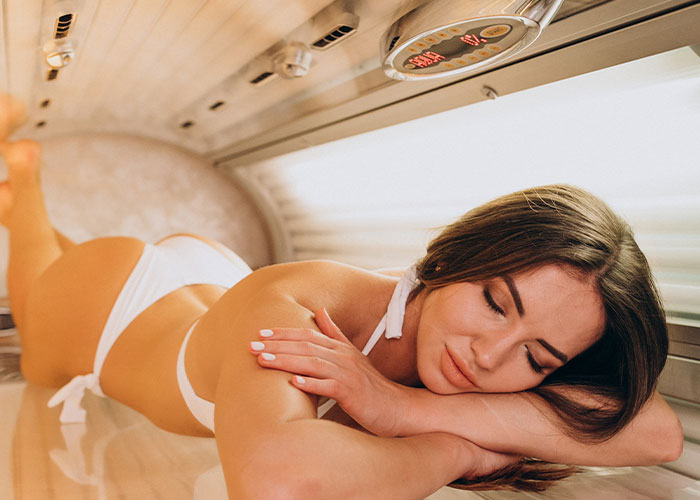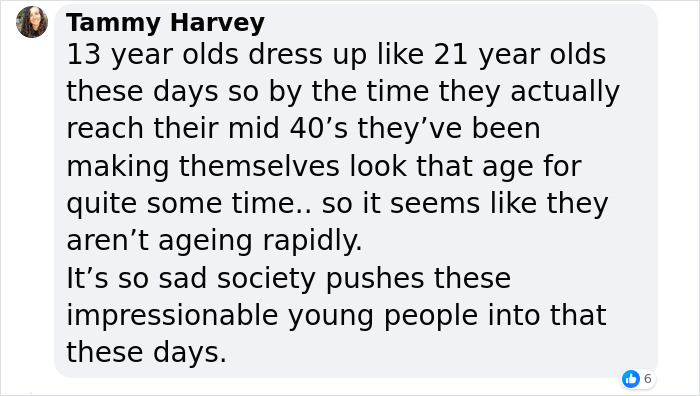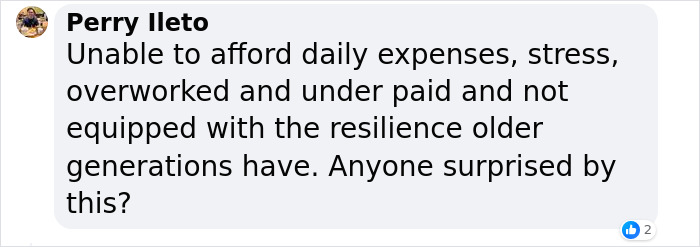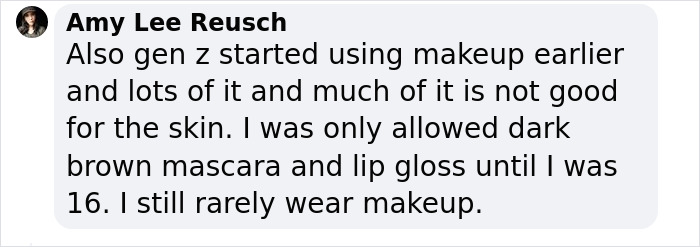While millennials have seemingly maintained a youthful look through healthy habits, skincare, and balanced diets, Generation Z has reportedly been experiencing premature aging due to the potential overuse of skincare and poor lifestyle choices.
Apparently, those born between 1981 and 1996 have acquired a better understanding of healthier diets and skincare, which has led millennials to appear more youthful than older generations did at the same age.
However, those born between 1997 to 2012 may have been overexposed to techniques millennials have come to learn in their twenties, therefore, starting to use products incorrectly, causing them to age prematurely.
Experts found that while millennials age well, Gen-Zers show premature aging from skincare and lifestyle
Image credits: Unsplash
Dr. Rasha Rakhshani-Moghadam told the Daily Mail: “Overuse or unnecessary application of filler and toxins at a young age may affect the natural facial development, causing younger patients to look older than they are.”
She further explained: “Millennials generally have a heightened awareness of skincare and diet, compared to previous generations, often incorporating a more holistic approach to well-being.
“This shift involves a greater emphasis on preventive skincare practices and a focus on balanced diets.”
Lip and cheek fillers contribute to Gen-Zers appearing older, experts say
Image credits: freepik
The phenomenon has also been noticed on social media, sparking TikTok videos trying to explain “why Millennials look younger than Gen Z”.
Research on TikTok for videos including the “Why don’t millennials age” or “Why millennials look young” questions have garnered millions of views.
Gen-Z TikTok star Jordan the Stallion said: “Millennials age differently from this oldest generation and the newest generation.
“Millennials look way too old for their age or way too young. The newest generation all look too old.”
“We don’t age because we take naps and we have a morbid sense of humor lol we laugh at everything,” a person commented on Jordan’s video.
Those born between 1997 to 2012 may have been overexposed to techniques millennials have come to learn in their twenties
Image credits: Sam Lion
Dr. Ross Perry, medical director of Cosmedics Skin Clinics, told the Daily Mail: “It is not uncommon to see 18-year-olds with lip filler.”
He explained: “20-year-olds are having Botox and fillers, semi-permanent makeup in the form of eyebrows and lips, all of which combined can make you appear older, but actually once you start down this route, it’s very hard to go back to being entirely natural, especially when the ‘affirmations’ start on social media.”
Ross continued: “Combined with lifestyle and environmental factors, for example, it’s become “fashionable” to have a tan again, so statistics have told us the use of sunbeds are on the rise, again, not only are you putting yourself at risk of skin cancer further down the line, but also premature aging will be happening far quicker.”
People aged 11 to 26 use harsh skincare products that could damage their skin down the line
Image credits: KoolShooters
Amish Patel, an award-winning aesthetics practitioner and skincare expert, echoed the previous opinions as he said: “We know that lifestyle choices also have an impact on the aging process- vaping, smoking, drinking excess alcohol, eating a poor diet, not wearing a high SPF all affect your skin, so if you are starting to develop bad lifestyle choices from a younger age, it makes sense that you are not going to age well into your thirties and above.
“Developing good skin care habits is important, but these don’t have to be overly complicated or expensive for Gen-Zers.
“The exaggerated trend for overfilled cheeks and lips also distorts the face and masks the natural youthfulness you possess in your twenties. In fact, it can make you look a lot older than you actually are.”
“Millennials generally have a heightened awareness of skincare and diet, compared to previous generations,” a doctor said
Image credits: Sayan Majhi
Dr. Sophie Shotter, who runs Medical Cosmetic Skin Clinic in London, further claimed that Gen Z’s premature aging is down to “lifestyle and beauty trends”.
She said: “We can’t necessarily say if this reflects in their actual biological age, but certainly in their appearance.
“I think, perhaps having wrinkle-relaxing injectables and fillers too young and embarking on an approach that homogenizes faces is partly responsible, especially with the reality TV and influencer cohort of celebrities.
The rising popularity of sunbeds is another factor believed to contribute to Gen-Zers appearing older
Image credits: senivpetro/freepik
“There’s a right age to embark on treatments, and for most people, it isn’t before the age of 30 for age management reasons.
“There are very few people under this age who will truly benefit from wrinkle relaxing injections at younger ages, although there are some and it has to be decided on a case-by-case basis.
“Having these treatments before they’re truly needed can sometimes make someone appear older (in the wrong hands) with an almost mask-like appearance.”
“It’s so sad society pushes these impressionable young people into that these days,” a reader commented
The post “Exaggerated” Cosmetic Trends May Have Caused Gen-Zs To Look Older Than Millennials first appeared on Bored Panda.
Go to Source
Author: Karina Babenok

